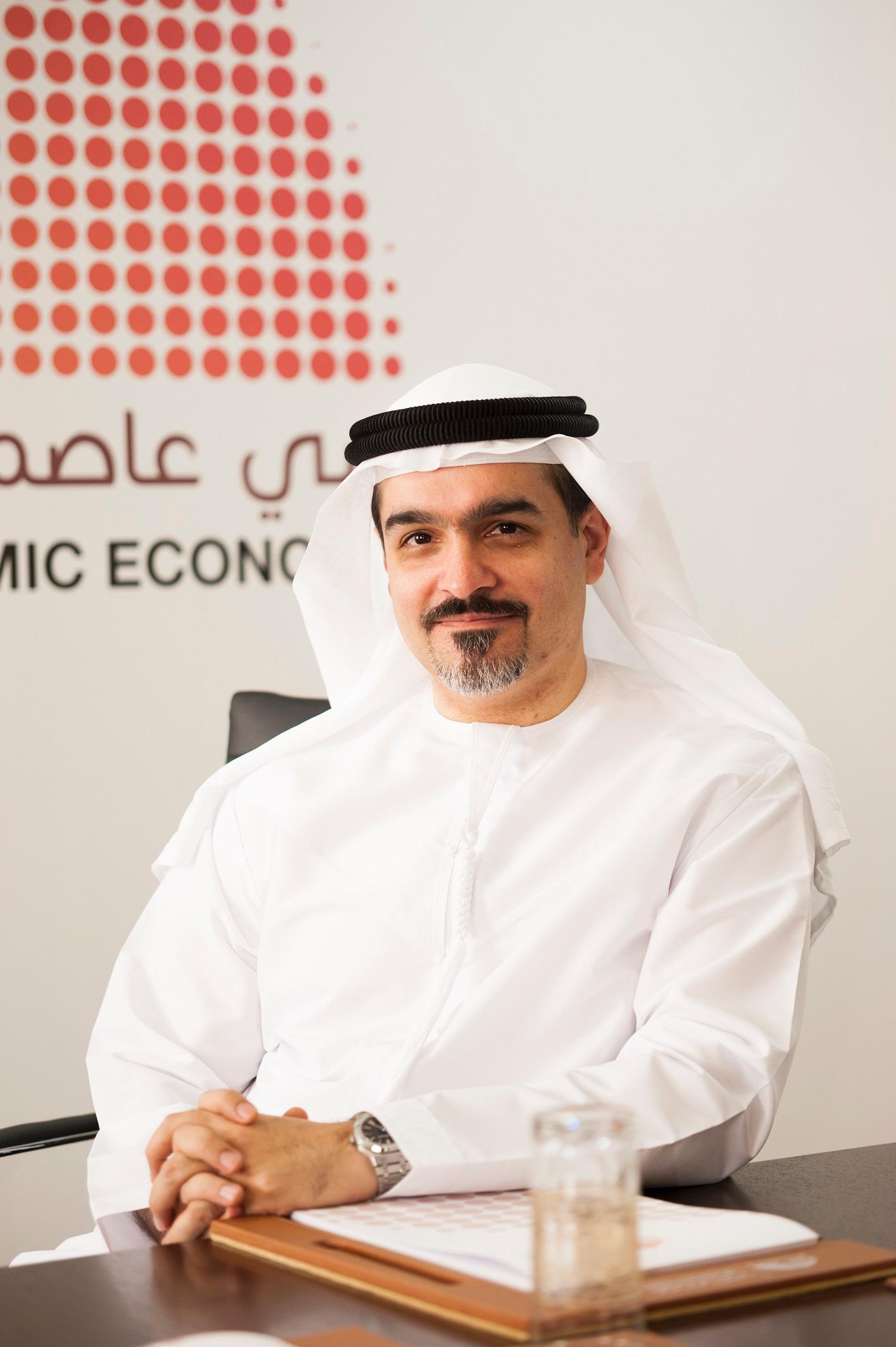Dubai’s first-ever dedicated Islamic Economy Week spurred by increasing interest in industry, says DIEDC chief
Photo: Abdulla Al Awar, chief executive of the Dubai Islamic Economy Development Centre (DIEDC)
DUBAI - Dubai’s first-ever Islamic Economy Week (IEW) comes five years after the launch of the city’s Islamic Economy vision was announced. Abdulla Al Awar, chief executive of the Dubai Islamic Economy Development Centre (DIEDC), told Salaam Gateway the Centre organised IEW after seeing increasing interest from industry stakeholders to hold activities around the flagship Global Islamic Economy Summit (GIES).
“The summit’s program, although quite diverse and interesting in its own right, is limited to two days and there would not be sufficient time to undertake all of the activities that our stakeholders would like to conduct,†said Al Awar.
The GIES will run on Oct 30-31, towards the tail-end of the six-day Islamic Economy Week (IEW) that kicked off on Saturday, Oct 27.
“HH Sheikh Hamdan bin Mohammed bin Rashid Al Maktoum’s (the Crown Prince of Dubai, Chairman of The Executive Council of Dubai and General Supervisor of ‘Dubai the Capital of the Islamic Economy’ initiative) instruction to launch the Islamic Economy Week enabled the creation of a platform for Islamic Economy sectors and projects so that they can flourish,†said Al Awar.
“This week-long platform will give the opportunity to companies, whether from the public or private sector to showcase what they have done with regards to the Islamic Economy and to use that platform to explore further opportunities,†he added.
STRATEGY
DIEDC launched its refreshed Islamic Economy Strategy for 2017-2021 last year, focusing on the growth of three sectors — Islamic finance, halal products, and Islamic lifestyle.
According to latest figures from DIEDC and the Dubai Statistics Center, the Islamic Economy contributed 8.3 percent to Dubai's GDP in 2016.
The contribution is quite significant, Al Awar noted, especially as the growth happened in just four years since the launch of Dubai’s Islamic Economy vision was launched.
“The fact that HH Sheikh Mohammed bin Rashid Al Maktoum, Vice President and Prime Minister of the UAE and Ruler of Dubai, announced the vision of Dubai to become the capital of the Islamic Economy in 2013 by itself created a strong shift in terms of opening up another layer of economic contribution as far as the emirate of Dubai is concerned,†said Al Awar.
He underlined that the 8.3 percent does not cover the entire spectrum of the Islamic Economy.
“We only measured three specific sectors – Islamic finance, halal food and halal trade. In the next edition, we will provide further analysis and information as to what could be the potential contribution of the Islamic economy,†Al Awar said.
NATIONAL AGENDA, CREATING OPPORTUNITIES
The progress of the sector is within the national agenda of the UAE, with several federal bodies that are DIEDC stakeholders carrying out Islamic Economy initiatives.
The halal accreditation scheme was launched in 2013 by the Emirates Authority for Standardisation and Metrology (ESMA), which also introduced the Halal Mark certification in 2014.
Al Awar added that initiatives such as the Hamdan Bin Mohammed Smart University, as well as new courses and academic degrees in Islamic finance, and the launch of the Halal Academy by Emirates International Accreditation Center (EIAC) will help narrow the talent gap in the Islamic Economy.
“If you look at Islamic finance, there are many professionals around the globe and they play an important role in shaping that sector. On the halal food side, it’s a similar story,†Al Awar said.
Islamic finance and the halal industries are two of the more mature sectors in the Islamic Economy. DIEDC is also focusing on developing smaller and more nascent sectors, such as through initiatives like IEW, so they can continue to grow internationally.
“[T]here are sectors that are relatively new, globally speaking. In Islamic lifestyle, we have modest fashion and Islamic design, which are smaller than Islamic finance and halal food, but they can probably provide a lot of opportunities when it comes to careers being established,†said Al Awar.
The more stakeholders that are interested in launching Islamic products and services, the more opportunities there will be, he added.
|
SELECT ISLAMIC ECONOMY WEEK EVENTS For the full programme: https://bit.ly/2CTgC8L Oct 27-Nov 3: “Tawaaf†Exhibition by Dubai Culture at Al Serkal Cultural Foundation Oct 28: Launch of the State of the Global Islamic Economy (SGIE) 2018/19 report, which is published by DIEDC in collaboration with Thomson Reuters. The SGIE report will show the opportunities for investors and companies that had not previously thought of entering the Islamic Economy, said Al Awar. “[I]n doing so this will create more jobs. It’s a chain reaction,†he said. Oct 28: Workshop on Islamic Fintech – Innovations in Sustainable Finance at the Heriot Watt University Oct 29-30: Halal Expo by Orange Fairs at Crown Plaza Hotel, Sheikh Zayed Road Oct 29: Social Entreprenerurship Priorities Across Islamic Economies by Goodforce Labs at DAFZA Oct 29: Emirates International Accreditation Center (EIAC) course on international halal standards and schemes benchmarking, conducted by the Halal Academy. The course is considered the first-of-its-kind training for halal auditors, according to Al Awar. Oct 30: Islamic Creative Economy Competition, which DIEDC and Dubai Culture & Arts Authority are organising for the first time. The contest attracted 120 nominations from around the world, with 10 finalists invited to present their pitches on Oct 30 during the GIES. Winners will be announced that same evening. “We’re very optimistic about the Islamic Creative Economy Competition because it will shed light on categories that had not previously been highlighted and will motivate and recognize achievers,†said Al Awar. Oct 31: Global Islamic Business Award Nov 1: Role of Culture in Driving Global Innovation by Dubai Future Academy at the Dubai Future Academy |
(Reporting by Heba Hashem; Editing by Emmy Abdul Alim [email protected])
Our Standards: The Thomson Reuters Trust Principles
© SalaamGateway.com 2018 All Rights Reserved
